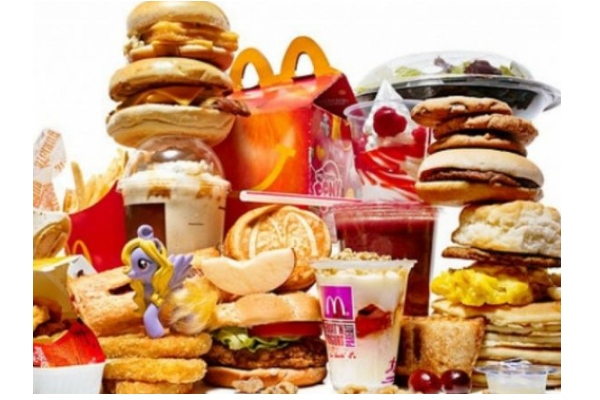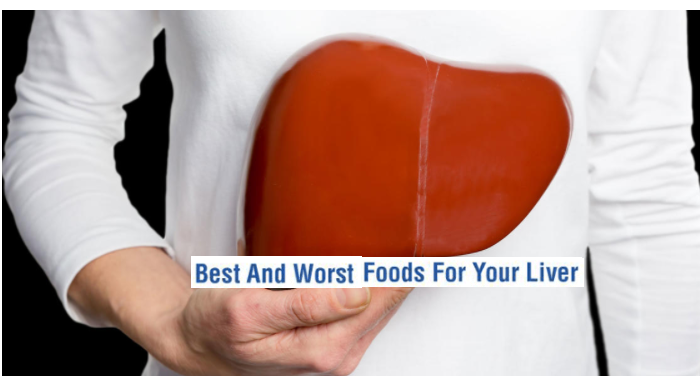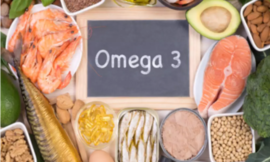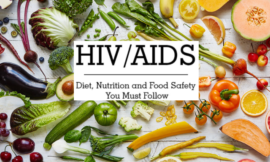Liver health is vital for overall health, our liver is responsible for breaking down carbohydrates, making glucose, and detoxing the body. It also stores nutrients and creates bile, which is necessary to digest and absorb the nutrients in food properly. Protecting the vital organ to maintain our health is important.
Liver perform detoxing duty of our body, so what food we consume have grate influence on liver health. Some foods may help proper functioning of the liver and some are damage our liver. Liver dysfunction can lead to liver disease, metabolic disorder, and even type 2 diabetes. While it may be impossible to manage all risk factors, here are some foods which must include in your diet and some need to avoid to maintain our liver health.
These are the foods that a person can consume to help protect the liver.
Coffee
Coffee appears to be good for the liver, especially because it protects against issues such as fatty liver disease. Daily intake of coffee may help reduce the risk of chronic liver disease. It may also protect the liver from damaging conditions, such as liver cancer.
Coffee, it reports, seems to reduce fat buildup in the liver. It also increases protective antioxidants in the liver. Compounds in coffee also help liver enzymes rid the body of cancer-causing substances.
Spinach
Leafy greens have a powerful antioxidant called glutathione, which can help keep your liver working right. And spinach couldn’t be easier to prepare. It makes a great base for a dinner salad, and it’s also delicious sautéed with garlic and olive oil. When it’s wilted, top it with a dusting of fresh parmesan.
Green tea
Green tea may help reduce overall fat content, fight against oxidative stress, and reduce other signs of nonalcoholic fatty liver disease (NAFLD). It is important to note that tea may be better than extracts, as some extracts may damage the liver rather than heal it.
Research suggests it may protect against some forms of cancer, including liver. You’ll get more catechins if you brew tea yourself and drink it hot. Iced tea and ready-to-drink green teas have much lower levels.
Berries
Many dark berries, such as blueberries, raspberries, and cranberries, contain antioxidants called polyphenols, that may help protect you against nonalcoholic fatty liver disease, which often goes hand in hand with obesity and high cholesterol.
A studies found that regularly eating berries may also help stimulate the immune system.
Fatty fish
Fatty fish is rich in omega-3 fatty acids, which are the good fats that help reduce inflammation. These fats may be especially helpful in the liver, as they appear to prevent the buildup of excess fats and maintain enzyme levels in the liver.
The study recommends eating oily fish two or more times each week. If it is not easy to incorporate fatty fish such as herring or salmon into the diet, try taking a daily fish oil supplement.
Foods to avoid to protect our liver

In general, finding balance in the diet will keep the liver healthy. However, there are also some foods and food groups that the liver finds harder to process. These include:
Stay Away From Fatty Foods
French fries and burgers are a poor choice to keep your liver healthy. Eat too many foods that are high in saturated fat and it can make it harder for your liver to do its job. Over time it may lead to inflammation, which in turn could cause scarring of the liver that’s known as cirrhosis.
Ease Up on Sugar
Too much of the sweet stuff can take a toll on your liver. That’s because part of its job is to convert sugar into fat. If you overdo it, your liver makes too much fat, which ends up hanging around where it doesn’t belong. In the long run, you could get a condition like fatty liver disease. So do your liver a favor and make sweets an occasional treat.
Put a Cap on Salt
Your body needs some salt — just not nearly as much as you probably get. Early research suggests a diet high in sodium may lead to fibrosis, which is the first stage of liver scarring. There are some easy things you can do to cut back. Simple ways to reduce salt intake include eating out less, avoiding canned meats or vegetables, and reducing or avoiding salted deli meats and bacon. And keep temptation at arm’s length by taking your salt shaker off the table.
Moderate With Alcohol
Drinking too much can damage your liver. Over time it can lead to cirrhosis. Even occasional binge drinking — four drinks in one sitting for women and five for men — can be harmful, too. Try to limit yourself to one drink a day if you’re a woman or two a day if you’re a man.
If you want to give a break to your liver, you should consider reduce the intake of alcohol or eliminating it from the diet completely.
Limit Packaged Snack Foods
Choose healthy snacks instead of packaged foods, the problem with chips and baked goods is that they’re usually loaded with sugar, salt, and fat. Cutting back is a relatively easy diet tweak with a little planning. One good strategy: Bring a stash of healthy snacks with you to work. Try an apple with a single-serve packet of nut butter, or sugar snap peas with a mini-cup of hummus. Packaged snacks, chips, and nuts may also be surprisingly high in fats.
So, avoid these unhealthy foods for the health of your liver.





